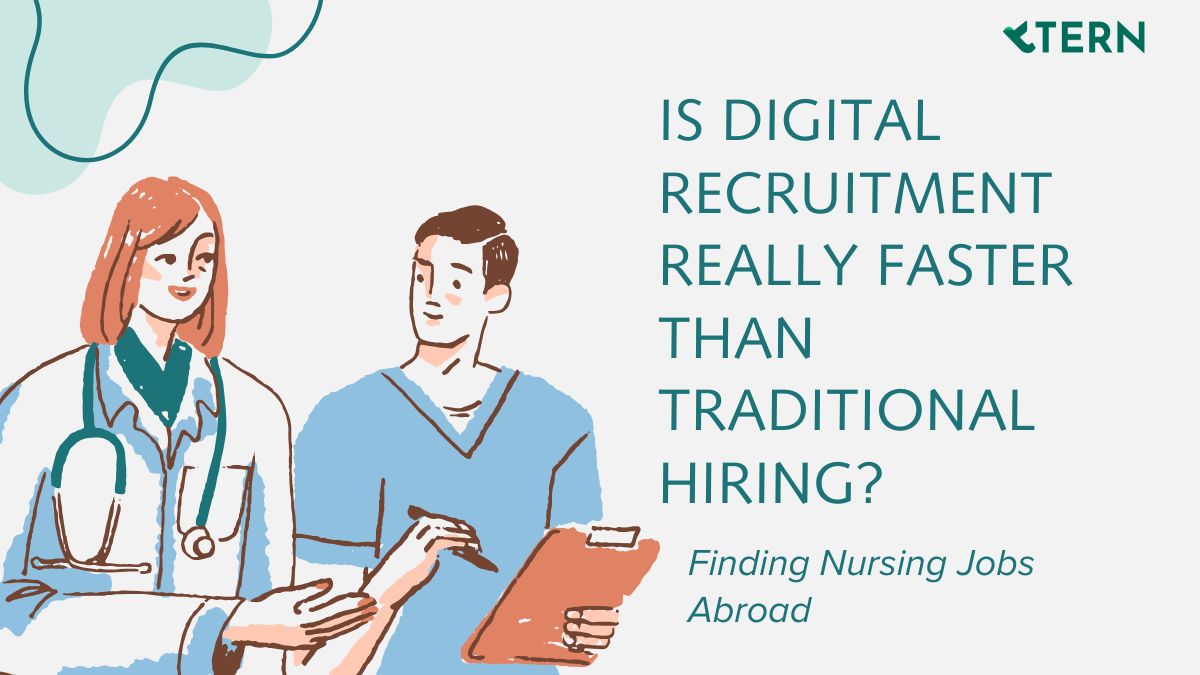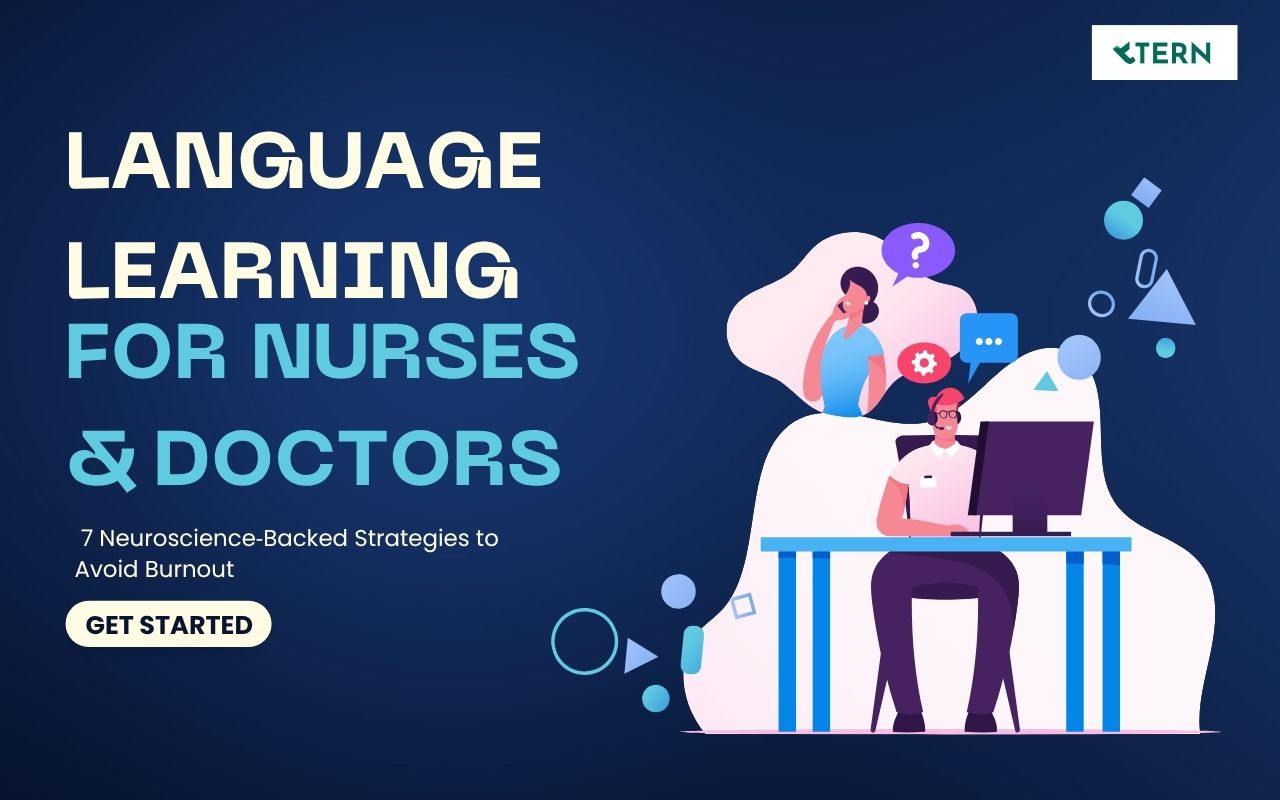TERN
August 26, 2024
•
4 minutes
Ethical Recruitment: Building a Fair and Inclusive Workforce.

Recruitment is the backbone of any organisation and in today’s rapidly changing global workforce, ethical recruitment practices have become a crucial aspect for maintaining a fair and inclusive hiring process. This is not just a moral requirement, but also a legal requirement.
Ethical recruitment not only ensures that candidates are treated fairly but also helps companies build stronger, more diverse teams that reflect today’s interconnected world.
In this blog, we’ll explore what ethical recruitment means, why it’s essential, and how organisations can implement fair and inclusive hiring practices.
What is Ethical Recruitment?
Ethical recruitment refers to the process of hiring individuals in a manner that is fair, transparent, and inclusive. It involves respecting the rights of candidates, providing equal opportunities, and ensuring that no one is discriminated against based on their background, gender, ethnicity, or other factors. Ethical recruitment also prioritises transparency in communication, clear expectations, and a commitment to avoiding exploitative practices.
According to a report by the International Labour Organization (ILO), approximately 40 million people worldwide are victims of modern slavery, and unethical recruitment practices are a significant contributor to this crisis.
Ethical recruitment is, therefore, critical in safeguarding workers' rights and ensuring fair treatment.
Why is Ethical Recruitment Important?

- Promotes Diversity and Inclusion
One of the most significant advantages of ethical recruitment is that it fosters diversity and inclusion. By implementing inclusive hiring practices, companies are more likely to attract a wide range of candidates with varying perspectives, skills, and experiences. Research from McKinsey shows that companies with a more diverse workforce are 35% more likely to outperform their competitors.
- Boosts Employer Brand
Organisations that prioritise recruitment ethics enhance their reputation in the job market.When candidates know that they will be treated fairly and without bias, they are more likely to trust the organisation and recommend it to others. This positive employer brand can also help attract top talent, leading to long-term success.
- Reduces Turnover and Increases Retention
Unethical hiring practices, such as misleading job descriptions or poor treatment of candidates, can lead to high turnover rates. Employees who feel mistreated or deceived during the recruitment process are less likely to stay with the company long-term. Ethical recruitment, on the other hand, promotes transparency and ensures that candidates are well-informed about the role and company culture from the start. This leads to better retention rates and greater employee satisfaction.
Principles of Fair and Inclusive Hiring
To build a fair and inclusive workforce, companies must implement the followingethical recruitment principles:
- Transparency in Job Descriptions and Hiring Criteria
Clear, honest communication is the foundation of ethical recruitment. Job descriptionsshould accurately reflect the responsibilities, requirements, and benefits ofthe position. Transparency in hiring criteria is equally important, ensuringthat candidates understand how their applications will be assessed.
Accordingto a study by Glassdoor, 76% of jobseekers say that a diverse workforce is an important factor when evaluatingjob offers. Companies must be transparent about their commitment to diversityand inclusion in their job postings to attract the right talent.
- Eliminating Bias in Hiring
One of the key aspects of ethical recruitment is eliminating unconscious bias from the hiring process. This means ensuring that no candidate is discriminated against based on their gender, ethnicity, age, religion, or other personal characteristics. Tools such as blind recruitment (removing names and other identifying information from resumes) can help reduce bias in the early stages of hiring.
In addition, AI-driven recruitment tools are becoming more popular for their ability to screen candidates without bias. However, it's essential to ensure that these tools are designed ethically and do not inadvertently reinforce existing biases.
- Fair Compensation and Employment Terms
Ethical recruitment also extends to offering fair compensation and employment terms to candidates. This means ensuring that candidates are not exploited through low wages, unclear contract terms, or excessive work hours. Companies should provide clear and transparent information about pay, benefits, and working conditions to ensure that candidates are fully informed before accepting a job offer.
According to the International Labour Organization (ILO), over 25 million workers are exploited through unclear contracts and poor employment conditions.
- Inclusive Interviewing Practices
Inclusive hiring means creating an environment where all candidates feel welcome and have an equal opportunity to succeed. Interviewers should be trained to conduct interviews that are fair and free from bias. In some cases, offering candidates flexibility, such as remote interviews or accommodations for disabilities, can help create a more inclusive process.
In addition, structured interviews, where all candidates are asked the same set of questions, can help ensure that hiring decisions are made based on merit rather than personal biases or gut feelings.
The Role of Technology in Ethical Recruitment

As companies embrace digital transformation, technology has become an integral part of the recruitment process. However, it's essential to use these tools in a way that aligns with ethical recruitment principles. Here are a few ways technology can support fair and inclusive hiring:
- AI-Powered Applicant Tracking Systems (ATS): AI tools can help companies sift through large volumes of applications and identify candidates who meet the requirements without bias. However, these systems must be carefully calibrated to ensure they do not perpetuate existing biases. For example, ensuring that the algorithm does not favour male candidates over female candidates for certain roles.
- Automated Interview Scheduling: Automating tasks like interview scheduling ensures that candidates from all backgrounds have equal access to opportunities without delays or miscommunication.
- Virtual Interviews and Assessments: Virtual interview platforms can help level the playing field for candidates by offering flexibility in terms of timing and location. For example, candidates who may not be able to attend an in-person interview due to geographical or personal constraints can still have a fair shot at the job.
Best Practices for Ethical Recruitment
- Conduct Regular Bias Training: Companies should provide training to their HR teams and hiring managers to raise awareness of unconscious bias and its impact on hiring decisions.
- Monitor and Measure: Regularly tracking and measuring the outcomes of recruitment efforts is essential for identifying areas where bias may still exist. By analysing the data, companies can make adjustments to improve the fairness and inclusivity of their hiring process.
- Engage in Ethical Partnerships: Working with ethical recruitment agencies that follow fair and transparent practices can help ensure that candidates are treated with respect throughout the hiring process.
- Unbiased Employee Assessment: An unbiased, fair, objective, and constructive hiring process makes an individual feel included in the organisation. This also helps an employer obtain the best people for the business too.
Conclusion
Ethical recruitment is not just a buzzword—it’s a necessary practice for building a fair and inclusive workforce. By committing to transparent, unbiased, and fair recruitment practices, organisations can attract top talent, improve diversity, and foster a culture of inclusivity.
At TERN, we pride ourselves on adhering to the highest standards of ethical recruitment. We believe that every candidate deserves to be treated fairly and with respect throughout their hiring journey.Ready to join the movement for fair and inclusive hiring? Learn more about our approach on our website.
To know more about the future of International Recruitment, click here.





.jpg)

